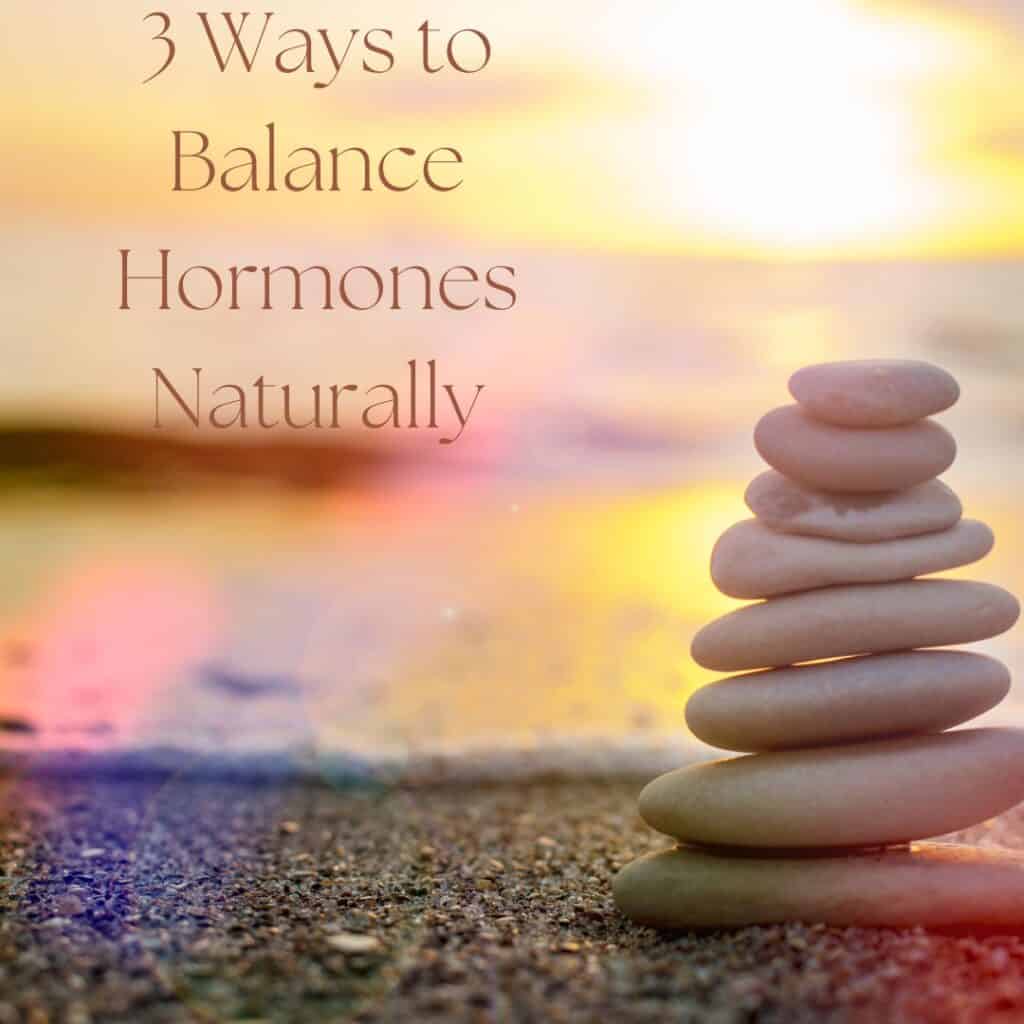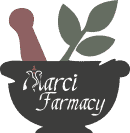
How to Take the Headache out of Hormone Imbalance
Do you suffer from any of these common hormonal issues such as painful cramps, menstrual migraines, symptoms of PMS such as bloating, edema, mood changes, or heavy periods. Have experienced weight gain, hormonal acne or even experiencing hot flashes. Have you been diagnosed with having fibroids, PCOS or endometriosis?
What if I told you that you can balance hormones naturally without medications or surgery i.e., hysterectomy?
There are 3 Ways to you can balance hormones naturally:
1. Balance Blood Sugar This is huge ladies!
When blood sugar is balanced, so is everything else – your energy, mood, and your hormones. Steady blood sugar is important for healthy cortisol levels. It also prevents and reverses insulin resistance. Did you know that one of the most significant sources of adrenal stress is poorly regulated blood sugar?
Studies show that swapping out empty or refined carbs in the diet for complex carbs and healthy protein can dramatically improve blood sugar and hormone balance.
Protein-rich foods provide amino acids and sulfur-rich compounds, the building blocks we need to make compounds used in detoxification, and to produce neurotransmitters that support our mood.
What is the verdict on No Carb or Low Carb Diets in hormone balance?
Sure, you can lose weight short-term going no carb or low carb. But for addressing PMS and other menstrual issues going no carb or low carb can often make symptoms worse.
Eating complex carbs premenstrual reduces PMS cravings, lifts mood, and memory. A moderate amount of complex carbohydrate intake improves insulin sensitivity, reduces excess androgens (DHEA and testosterone), and restores ovulatory function.
How about those monthly migraines? Hormonal migraines are related to changes in estrogen levels that occur throughout our cycles, triggering changes in serotonin and endorphins that affect our pain levels and our pain perception. Increasing intake of complex carbohydrates before menses keep serotonin levels steady as estrogen drops.
According to a 2009 JAMA Internal Medicine article, people on a low-carb diet for a year had more anxiety, depression, and anger believed to be due to the important role of carbohydrates in serotonin production.
Furthermore, a low-carb diet can trigger the brain’s warning signals and may also decrease thyroid function, making weight loss even more difficult to achieve over time.
When women drop too low in carbohydrates, it causes a drop in estradiol with a rise in estrone which is the type of estrogen that is released from fat tissue which signals our body to increase fat storage due to elevated cortisol levels.
Looking at studies on no-carb vs. low-carb vs. slow-carb diets, it’s low and slow carbs that win the race in the long run for most women with hormone imbalances. So, when it comes to hormone health, a diet with a modest amount of slow or complex carbs is the healthiest choice for most women.
Examples of slow or complex carbs include vegetables like artichokes, asparagus, broccoli, cabbage, cauliflower, celery, eggplant, all types of leafy greens, okra, peppers, and zucchini. The starchy vegetables such as squash, carrots, parsnips, and sweet potatoes. Beans and legumes. Grains and seeds such as quinoa, brown rice, rolled or steel-cut oats. Fruit such as apples, berries, and pears.
What is the best Diet to balance hormones?
I recommend one to two servings (1/2 cup) per day of complex carbohydrates with 6-8 servings (1 cup) of leafy greens and cruciferous vegetables (broccoli, brussels sprouts) – combined in a meal with healthy protein (1 – 1.2 g/lb./day), moderate amount of healthy fats like olive oil, nut butters, seeds, and nuts along with fiber aim for 25 grams or more a day to prevent blood sugar spikes and keeps insulin levels healthy, while providing you with steady energy all day long.
2. Reduce Alcohol Consumption
If you are trying to get your hormones in balance, alcohol may make matters worse.
Here’s a few things to take into consideration next time you reach for that glass of wine…
- Elevated estradiol (estrogen) levels have been found after alcohol consumption, with persistently high levels in the luteal phase the second half of the cycle, which can lead to increased breast symptoms such as tenderness and pain, heavier periods, and more menstrual cramping.
- Even mild to moderate alcohol intake on a regular basis has been associated with hormonal changes including more period pain.
- Alcohol is a depressant and drinking during the luteal phase, the second half of your cycle might worsen anxiety and depression during this phase; especially if you are someone who already suffers from PMS and depression.
- Regular alcohol intake has been associated with hormone imbalances and weight problems that are associated with increased risk of developing PCOS, fertility problems, uterine fibroids, and more severe menopausal symptoms like hot flashes.
- A convincing number of studies suggest that even low to moderate alcohol intake may negatively affect fertility. Pooled data from 19 studies involving 98,657 reproductive-age women found that, in relation to nondrinkers, any amount of regular drinking was significantly associated with a 13% reduction in time it took to get pregnant, whereas moderate to heavy drinking led to a 23% reduction.
- Regular drinking has also been associated with endometriosis.
- Alcohol, especially beer, also appears to be associated with increased risk of developing fibroids.
- The International Agency for Research on Cancer estimates that for every alcohol-containing drink consumed by a woman daily, her risk of breast cancer goes up 7%; a woman who consumes 2-3 drinks a day has a lifetime risk of about 15-25% increase over those who don’t drink. Alcohol is also inflammatory for the gut, disrupts the microbiome, and impairs liver function – reducing the detoxification and elimination of excess estrogen metabolites.
I think there is enough evidence to at least consider cutting back on the consumption of alcohol, don’t you? Especially if you suffer from any related hormonal issues or have an increased risk of breast cancer. If you don’t want to cut it out completely, at least consider cutting back!
3. Manage Stress
Did you know that the adrenal glands take over production of female hormones once women reach menopause?
When we release more cortisol, this predisposes us to store fat and breakdown muscle.
Consider the implications of a high-stress life and adrenal exhaustion, a formula that creates a difficult transition into menopause. Although it’s impossible to avoid stress altogether, you can lessen the impact of changing hormones, hot flashes, and sleep disturbance by managing stress with supplementation, nutrition, and the right lifestyle choices.
Chronically activated stress response day in and day out it’s like adrenaline and cortisol going from friends to overstaying houseguests – and your health and hormones pay the price.
Progesterone, our feel-good hormone that helps our mood and sleep ends up being converted to cortisol, under prolonged periods of stress.
When HPA axis is on alert, it puts the brakes on ovarian and thyroid function. Your brain is the link between what’s going on in your external world and internal world i.e., your ovaries and thyroid.
Some ways to reduce stress and stress management techniques:
- This is the most important one: Get plenty of rest, most of us need 7-8 hours of sleep to function optimally.
- Avoid over-stimulation: caffeine, alcohol, and sugar – Recurring “sugar crashes” takes a major toll on the adrenal stress system. That’s because our brain is DEPENDENT on a steady supply of glucose to keep it happily humming, and low blood sugar triggers your stress response to get mobilized and sends you in search of quick energy (sugar-laden foods). That is where keeping your blood sugar balanced with a healthy diet as mentioned above will keep your hunger in check and energy levels stable.
- Engage in daily meditation practice for at least 10 minutes per day – this is a huge game changer and one of the most beneficial habits you can do for your health and well being
- Participate in daily yoga or exercise that you enjoy doing.
- Spend time in nature – get outside when you can, go for a walk on your lunch break, get at least 15 minutes of good old vitamin D from the sun. It really affects our mood and our overall well being when we get outside to spend time in nature and soak up the sun.
If you are suffering from any of these common symptoms of hormone imbalance, feel free to reach out to me. I work with women one on one in my exclusive 3- and 6-month programs to address the underlying cause of dysfunction utilizing an integrative approach to health and wellness with functional modalities including meditation, yoga, and other mindfulness tools. I offer the assessment, strategy, along with the accountability, guidance, and support to make lasting changes.
References:
1.) Romm, Aviva. Hormone Intelligence. New York, NY: HarperCollins; 2021.
2.) Sims, Stacy. Roar. New York, NY: Rodale; 2016.
